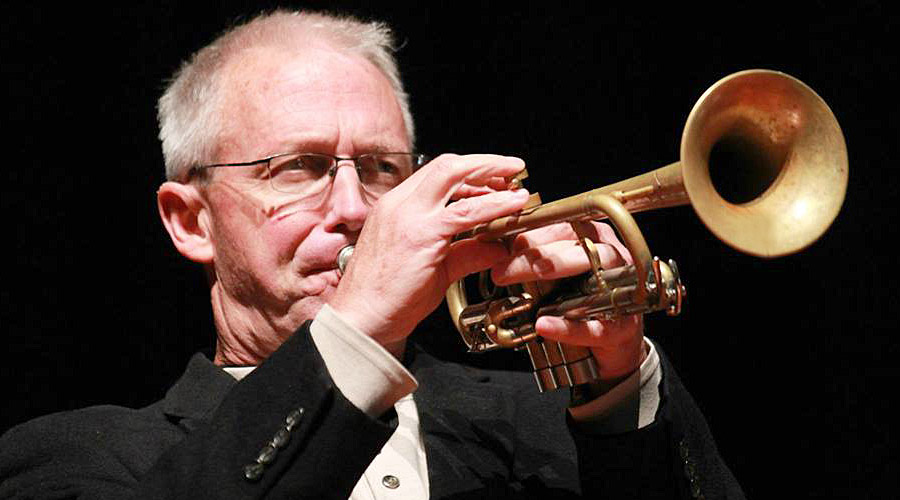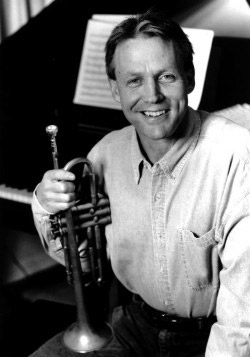
Professor Clay Jenkins
Professor of Jazz Studies & Contemporary Media at Eastman School of Music, University of Rochester, NY
Clay attended the University of North Texas (then named North Texas State University) where he earned his bachelor’s degree in music theory and studied trumpet with John Haynie. He received his master’s degree in jazz studies from the University of Southern California, studying trumpet with Boyde Hood, and currently studies with Uan Rasey. Prior to joining the faculty at Eastman, Clay held teaching positions at The University of Southern California, California State University at Northridge, California Institute of the Arts, Colburn School of Performing Arts, and The Foundation for the Junior Blind.
Clay’s experience as a performer began at an early age playing with the Stan Kenton Orchestra. He recorded three live albums with the Kenton Band, Artistry in Symphonic Jazz, A Time for Love, and The Lost Concerts, Vols. I & II, and was also involved with the “Stan Kenton Orchestra in Residence Jazz Camps.” Clay moved to Los Angeles in 1978, where he was in demand as both a live performer and studio-recording musician. It was at this time that he studied with the renowned trumpet teacher, James Stamp. From Los Angeles, he toured with the big bands of Harry James, Buddy Rich, and finally, the Count Basie Orchestra.
For additional information please visit:
– http://www.clayjenkins.net
– http://www.facebook.com/
A Duet Performance Featuring Clay Jenkins
Wisdom & Advice From A Master & Professional Jazz Freelance Trumpet Player
What equipment are you currently playing and why?
I play an Edwards Generation II trumpet (raw brass) and a Bach 3B mouthpiece.
Where you classically trained then switched to jazz and commercial music?
Yes, I took classical lessons all through high school and college, but I did practice jazz as a young student and played in rock bands, top 40 bands, etc.
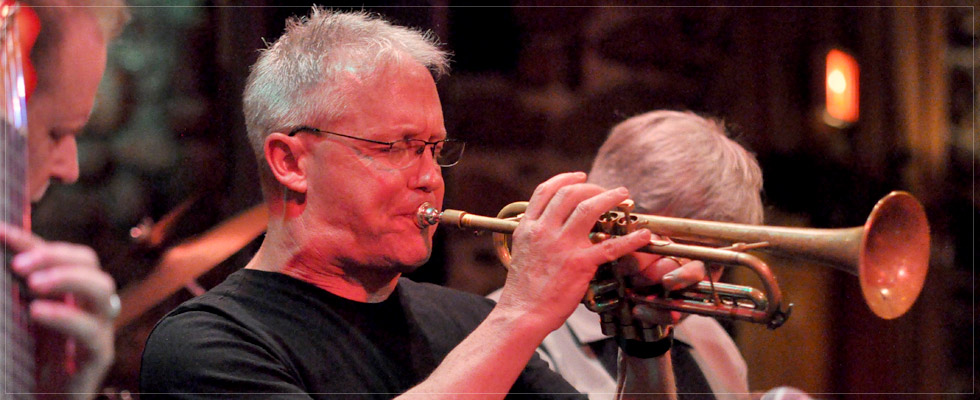
What do you mostly work on when at home practicing?
I try to make everything I do a sound exercise. I also work on endurance exercises, flexibility and range drills, harmonic drills, and I also practice improvising with records, the metronome, and free. When I practice I work on very specific things, not so they will show up in my soloing (though eventually they might) but so I can get closer to being able to play what I hear. I never get that entirely under control, maybe because I hear past what I can play, which is healthy I think.
How long where you studying/playing jazz before your solos started sounding cohesive and professional?
I don’t really know but I think my solos started making more sense (at least some of them!) when I was playing in the “1:00 O’clock Band” at North Texas State University.
When you are improvising are you thinking about scales or are you simply playing melodies and ideas that are playing in your head?
I work on scales and chords when I practice but when I am playing in public I am thinking more compositionally in terms of melodies and shapes and ideas. I would say I am still a bit of an ear player. By that, I mean I try to be as informed about the music as possible in terms of harmony, rhythm, melody, form, etc.
When soloing, do you have the chord changes memorized or do you simply have an idea of shapes and colors of the tune?
I am what some people term “an informed ear-player” in that I do know tunes and can play the chord changes on the piano, but when I am playing I try to be more compositional.
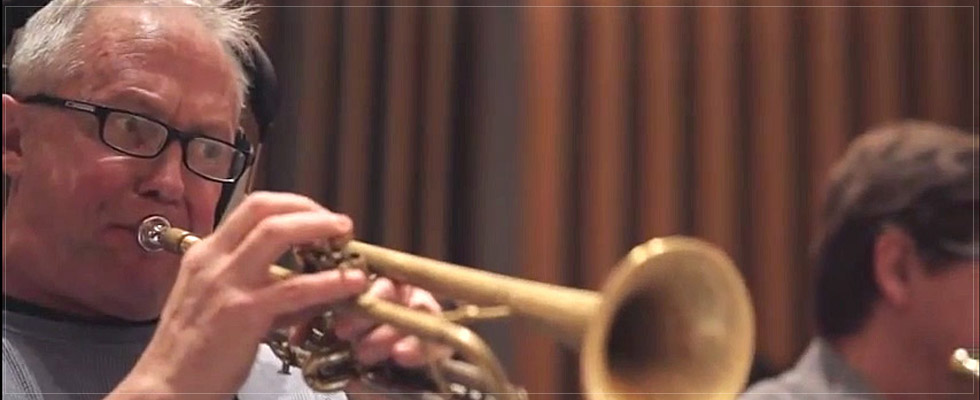
Are you normally not really concerned with the actual chord changes?
I think it is very important to really know the changes of any tune you are playing.
Do you select horns and mouthpieces depending on what the job calls for?
I play the same equipment all the time. If I played more lead in a big band I would probably try to play something a little smaller.
What is your prefer equipment for club dates where you are the soloist?
I play the same equipment all the time. If I played more lead in a big band I would probably try to play something a little smaller.
Do you ever run out of ideas when playing a solo?
Sure, so that is the time to listen more to the rhythm section and get ideas from them.
When recording your album, do you go for the first solo or do you do a few takes of the solo until you are happy with the result?
I usually do 2-3 takes on each song. After that I think I start to edit too much, so my second take is usually my best.
Do you write some ideas for the solo before heading to the studio?
As for pre-planning what to play, I can’t say I do that, though sometimes I will “mine” the melody or the root melody (shapes, retrograde, inversions, etc.) to see if I can use something interesting. That is a way to be more compositional in soloing so you can try to make each solo fit the song you are playing more unique ways instead of just playing over the changes.
What kind of scales and patterns do you practice?
I practice the regular major/minor/diminished etc. scales, but I also do the diatonic triads and their inversions and also lots of diatonic intervals.
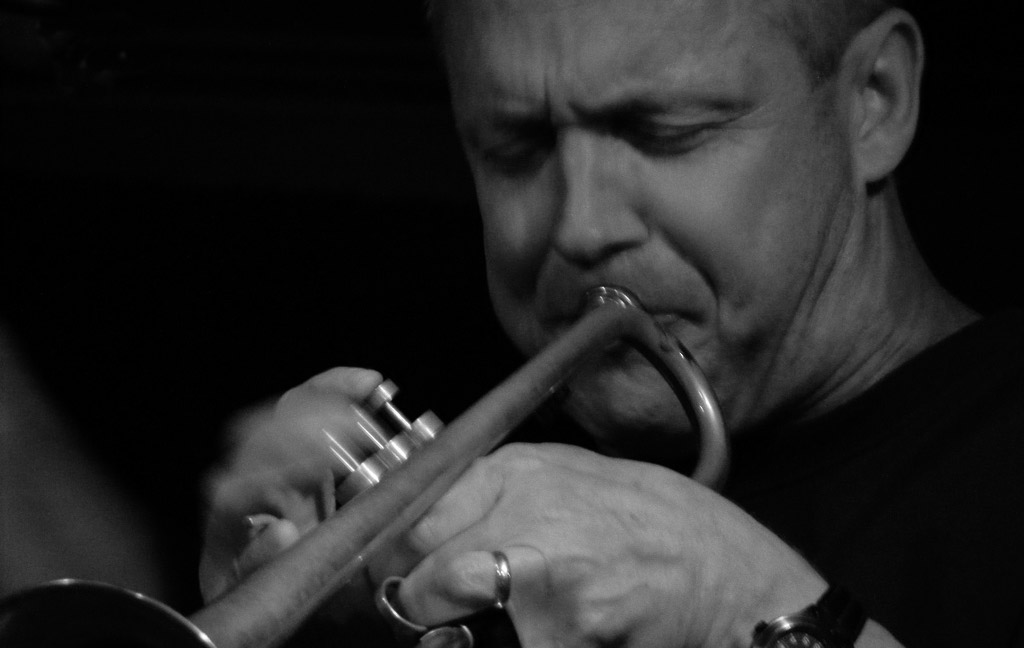
Who do you listen to for inspiration?
I listen to several players other than trumpet players, like Herbie Hancock, Coltrane, Scofield, Bird, Turrentine, as well as trumpet players like Miles, Thad, Kenny Dorham, etc.
How much time and effort did each of your solo albums cost you?
This is a hard question to answer because they all have involved different instrumentation and different players. I try to pay my players well and use good studios and mastering facilities. I also pay for the art on my records, so it can easily be $10,000 for each record.
Best advice you would give to an upcoming player?
I love Snooky Young’s advice. “Practice everyday, and be nice to people.”
Now that you are an established soloist, what is your biggest career challenge?
I want to continue improving as a soloist and as a composer. I hope to play in as many situations with great players as I can including live performances and recordings.
